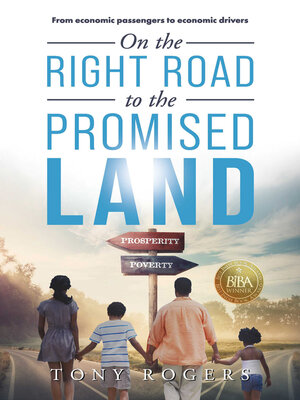On the right road to the Promised Land
ebook ∣ From economic passengers to economic drivers
By Tony Rogers

Sign up to save your library
With an OverDrive account, you can save your favorite libraries for at-a-glance information about availability. Find out more about OverDrive accounts.
Find this title in Libby, the library reading app by OverDrive.



Search for a digital library with this title
Title found at these libraries:
| Library Name | Distance |
|---|---|
| Loading... |
On August 28, 1963, Martin Luther King Jr. shared a dream for black America. A generation later, America had its first black president. Less than a decade later, black America was back in the streets protesting and one generation away from being the nation's permanent underclass. One of the most talked about topics in America today regards closing the black/white wealth gap. Corporate America is attempting to address the issue. Governments from the local level up to the federal government are attempting to address the issue. The night before his assassination Martin Luther King, Jr. addressed the issue. However, the issue had been addressed in 1865 when General William T. Sherman asked a direct question of Garrison Frazier in Savannah, Georgia. Sherman had completed his March to the Sea at the culmination of the American civil war. On the brink of the Union's victory Sherman asked the spokesperson for 20 black men, what can government do to ensure that you as freed slaves can take care of yourselves? Frazier responded, "Land." With land the former slaves responded, they could take care of themselves and "have something extra," or positive net worth. Sherman responded by issuing Field Order #15 granting 400,000 acres of confiscated land in 40 acre plots to the freed slaves' families. Shortly thereafter, the federal government created the Freedmen's Bureau, the 400,000 acres were repossessed and given back to the former confederate slave owners, and the freed slaves fell subject to compulsive labor agreements and back in bondage. Following this, which was the best opportunity for black American self determination, blacks have pursued several paths to the Promised Land only to find themselves farther away than at any time in history.







